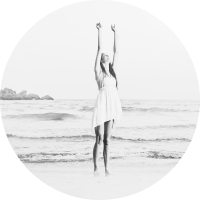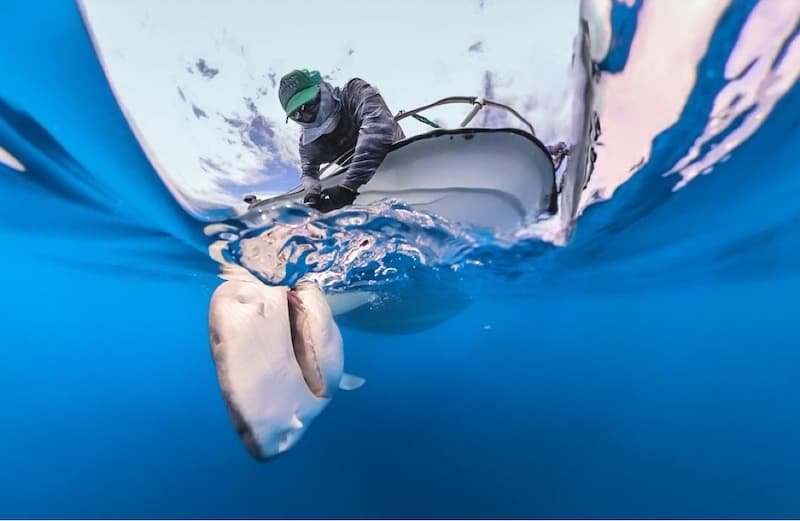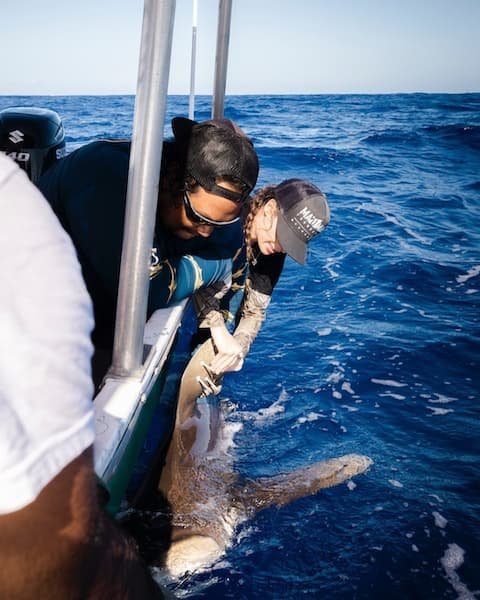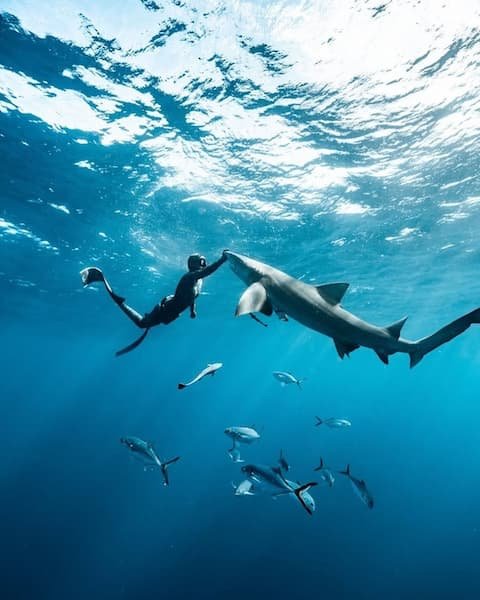
 Katie Wood
Freediver, Writer, Explorer
Katie Wood
Freediver, Writer, Explorer

 Katie Wood
Freediver, Writer, Explorer
Katie Wood
Freediver, Writer, Explorer
There are moments when a dive becomes more than a dive. When the silence beneath the surface speaks louder than any words. When a tiger shark glides past your lens and reminds you: this ocean is not ours—it is shared. Unfortunately, most people haven’t learned how to share.
Somewhere along the way, we decided that everything belongs to us—every fish, every tree, every square inch of reef, every drop of oil buried in the seabed. As if the planet was a storage unit and not a living, breathing, interconnected system. As if we had a receipt for everything that swims, flies, or grows. But the truth is different. The truth is humbling.
In the span of a single century, we’ve managed to destabilize ecosystems that took millions of years to form. We've driven species to the brink of extinction, acidified the oceans, warmed the planet, and filled our rivers with plastic and sludge. Coral reefs are bleaching. Fisheries are collapsing. Rainforests are burning. And still—we keep going. We build. We consume. We take. And then we take a little more.
What we’ve done to this planet is not an accident. It's a system of decisions, habits, and delusions that prioritizes convenience over consequence. And it’s not just governments or oil giants or shady conglomerates doing the damage. It’s us. You. Me. Everyone who looks away, buys cheap, flies often, and forgets to ask where things come from—or where they end up. We know better. But knowing hasn’t been enough.
If you freedive, you already know how to listen. You’ve felt your heartbeat slow down, your body surrender to the water, your awareness sharpen as you descend. You’ve learned—whether consciously or not—that to go deeper, you must do less. Take less oxygen. Make less noise. Burn less energy. The ocean rewards simplicity. So does the planet.
That means reducing what we consume. Repairing things instead of replacing them. Choosing gear that lasts longer and pollutes less. Asking questions about the materials, the labor, the waste. Buying less. Flying less. Taking only what we need—especially when it comes to fish, food, and fossil fuels. That means voting with our wallets, our feet, our words. It means staying informed even when it hurts, and being skeptical of convenience disguised as progress. It means pushing our communities, companies, and governments to stop treating the Earth like a spreadsheet with infinite margins. But most of all, it means giving a damn.
And here’s the part we often forget: we don’t all have to do everything. Some people will become scientists. Others will educate. Some will protest. Others will clean beaches, or tag sharks, or plant mangroves. What matters is that we each do something. If you don’t have time to fight on the front lines, you can support the people who do. And if you don’t know who those people are, let us introduce you.

French Polynesia is one of the last wild blue places on Earth. It’s made of lagoons and atolls and open ocean—home to tiger sharks, blacktips, manta rays, and an ancient culture that has always known how to live with the sea, not above it. But even here, change is coming fast. Overfishing, habitat degradation, and climate change are beginning to unravel what was once untouched. Local knowledge and global science need to come together now more than ever. That’s where the Maomana Foundation comes in.
Founded by Pierrick Seybald and Kori Burkhardt, Maomana is a small but mighty team doing big things in a remote corner of the Pacific. Pierrick grew up diving these waters. Kori is an ecologist who believes science should serve both people and the planet. Together, they’ve built a conservation effort that blends traditional knowledge with cutting-edge research.
In 2024 alone, Maomana tagged 16 tiger sharks with acoustic transmitters to better understand their role in reef health. They recorded 31 observations of the critically endangered oceanic whitetip shark, deploying satellite tags to track their migrations across the Pacific. They deployed 80 baited remote underwater video (BRUV) units—non-invasive tools that record what species show up when no divers are around.
They collaborated on four major documentaries. They brought schoolchildren onto boats. They trained locals to become stewards of their own ecosystems. And they did all of it without fanfare or funding from some sprawling conservation behemoth. Just grit. Knowledge. Purpose. And time in the water.


At Alchemy, we make tools for people who love the ocean. That comes with a responsibility. It’s not enough to sell carbon fins and post pretty underwater photos. If the oceans we love are dying, then we have to help save them. That means investing in the people doing the work—the real work, not the flashy PR-friendly stuff.
We partnered with the Maomana Foundation because they don’t just talk about conservation. They live it. They dive it. And they do it with humility, precision, and a deep respect for the culture and people of Polynesia. Supporting Maomana means supporting long-term research, science-based policy, ethical tourism, and community education. It means helping safeguard shark populations that keep reef ecosystems in balance. It means amplifying a story that deserves to be heard far beyond the South Pacific.
Sometimes, when we talk about the climate crisis or marine collapse, it all feels too big. Too complex. Too broken. But that’s the trap. That’s the excuse. The truth is: the path forward is built on local action, committed people, and the refusal to give up.
At Alchemy, we’re choosing to walk that path. To support those who dive for data, not likes. To build gear that performs, lasts, and respects the ocean it was made for. And to use our platform to amplify the voices of those who are quietly saving the world—one shark, one reef, one island at a time.